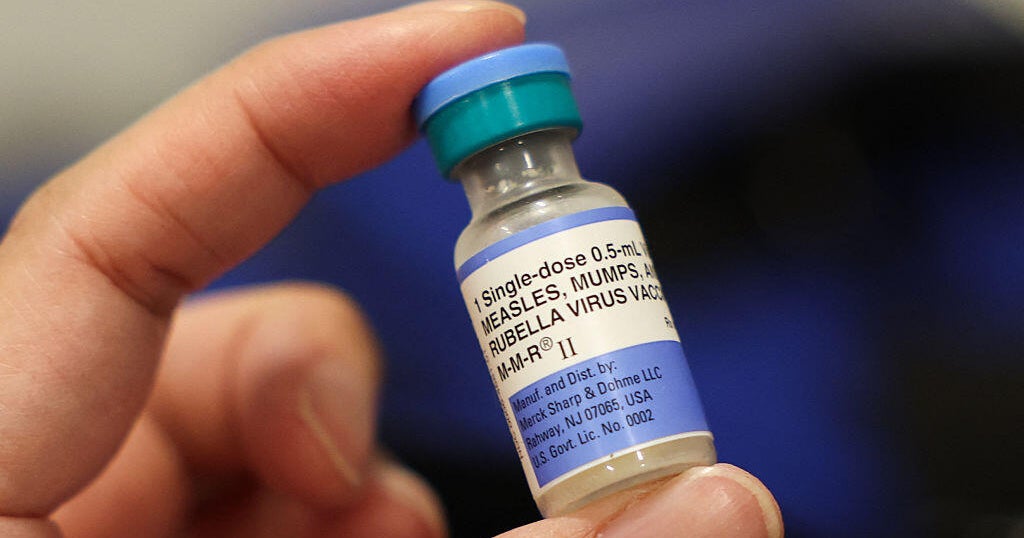Chronic fatigue syndrome affects 3.3 million Americans, the CDC estimates. Here's what to know about symptoms and treatment.
About 3.3 million U.S. adults have chronic fatigue syndrome, according to new data from the Centers for Disease Control and Prevention.
The number is the first nationally representative estimate of how many Americans have the condition — and it's more than previous studies have suggested, likely boosted by some patients with long COVID, the Associated Press reports,
The CDC report, released Friday, is based on a survey of 57,000 U.S. adults in 2021 and 2022. Participants were asked if a health professional had ever told them they had chronic fatigue syndrome and whether they still have it. About 1.3% said yes to both questions, which translated to about 3.3 million U.S. adults, CDC officials said.
The condition clearly "is not a rare illness," said the CDC's Dr. Elizabeth Unger, one of the report's co-authors.
They found cases were more common in women than men, and rates were higher in people ages 50-69, but people in all age, sex and racial and ethnic groups can be affected.
Chronic fatigue syndrome, also known as myalgic encephalomyelitis, or ME/CFS, is a "complex, multisystem illness characterized by activity-limiting fatigue," the report notes.
Symptoms of chronic fatigue syndrome
Chronic fatigue syndrome is more than just tiredness.
"Symptoms are extreme exhaustion after physical exercise and mental effort, unrefreshing sleep, trouble with memory, weight changes, extreme emotional stress, headaches and muscle pain," explains Dr. Eric Ascher, family medicine physician at Northwell Lenox Hill Hospital in New York. "Because symptoms mirror many other syndromes, it may be hard to diagnose."
Three primary or "core" symptoms are required for diagnosis, according to the CDC:
- Six months or longer of fatigue coupled with a greatly lowered ability to do activities that were usual before.
- Worsening of symptoms after physical or mental activity — known as post-exertional malaise, or PEM. Patients often describe this as a "crash" or "collapse" that can leave them bedridden for days after an activity as simple as going to the store or taking a shower.
- Sleep problems, including not feeling less tired even after a full night of sleep.
In addition to those core symptoms, the CDC says in order to qualify for the diagnosis patients must also experience either problems with thinking and memory — sometimes described as "brain fog" — or worsening of symptoms while standing or sitting, which may include dizziness, lightheadedness or fainting.
What causes chronic fatigue syndrome?
Researchers have not yet found an exact cause for ME/CFS, but it can occur after "viral or bacterial infections, can be due to genetics, chronic illness (or) autoimmune disease and physical or emotional trauma," Ascher said.
Cases can develop following infections with a number of different viruses including herpes simplex, dengue and Epstein-Barr virus, says Dr. Hector Bonilla, clinical associate professor of infectious diseases at Stanford.
"Now we see similar cases after coronavirus infections such as SARS, MERS, and SARS-CoV-2," Bonilla said.
And despite the diagnosis guidelines, it can be difficult for doctors to pin down, since there are no blood tests or scans to specifically diagnose ME/CFS. Plus there can be a lack of familiarity and education about the condition among medical professionals.
Experts believe only a fraction of the people with chronic fatigue syndrome actually get diagnosed, Dr. Daniel Clauw, director of the University of Michigan's Chronic Pain and Fatigue Research Center, told the AP.
"It's never, in the U.S., become a clinically popular diagnosis to give because there's no drugs approved for it. There's no treatment guidelines for it," Clauw said.
Chronic fatigue syndrome treatment
While this is currently no cure for ME/CFS, there are options to manage or treat certain symptoms of the condition.
For example, doctors may suggest medication or other therapies to help with pain and sleeping problems. For post-exertional malaise, it can help to develop an activity management or pacing plan to reduce flare-ups. The right balance of activity and rest may vary for each individual.
"Treatment is usually to manage symptoms and is multidisciplinary, including movement (yoga and stretching), gentle massages, hydration, a healthy, anti-inflammatory diet (meaning less processed and prepackaged foods) and therapy (both behavioral and physical)," Ascher noted. He said the goal is to reduce stress and anxiety and promote a state of healing and mindfulness.
"Sometimes medications are used as well if these other treatment options do not provide relief," he adds. "Many patients may be turned off when offered an antidepressant, but these medications have shown to improve symptoms and allow suffering patients to live a more fulfilling life."



